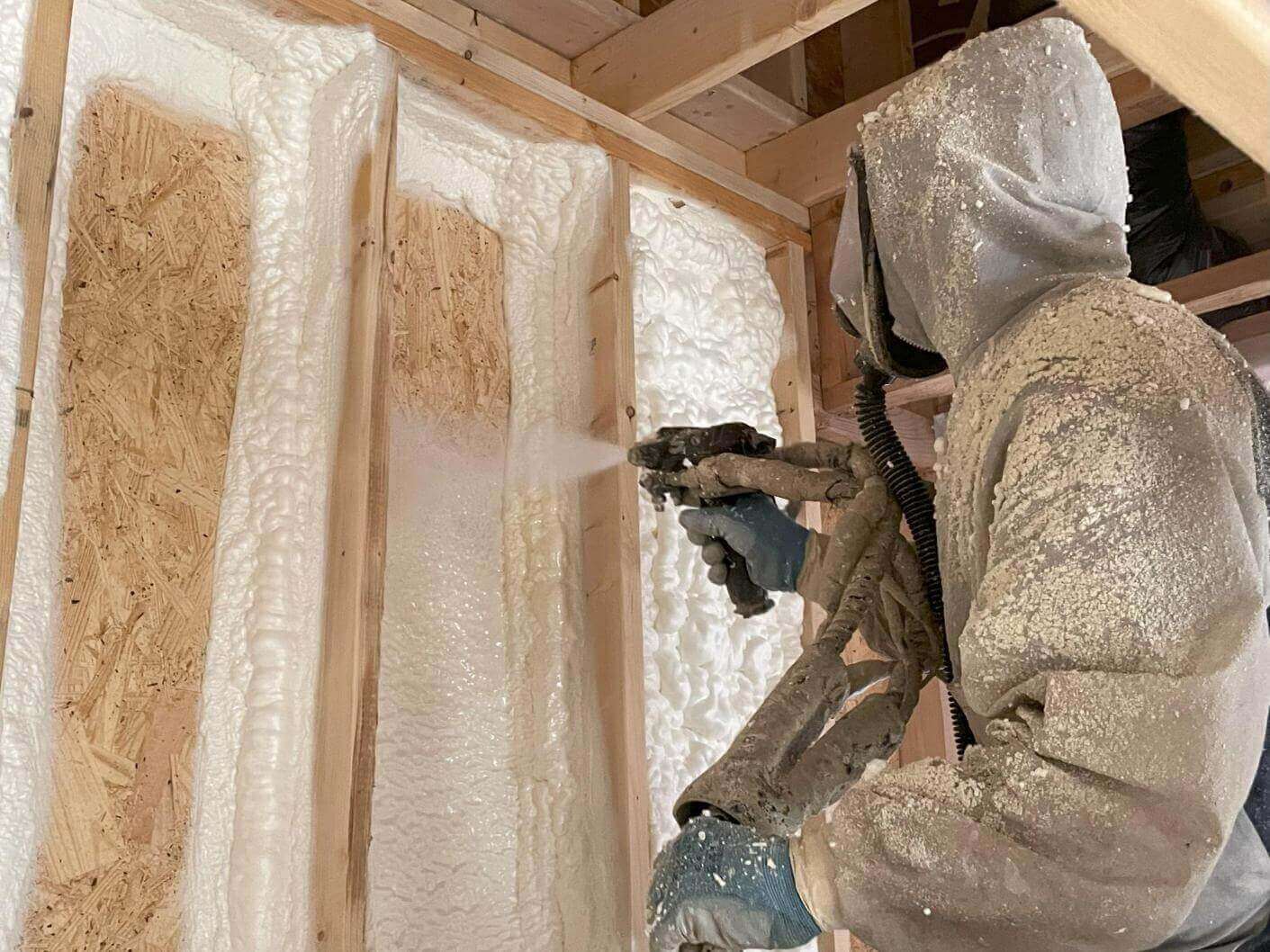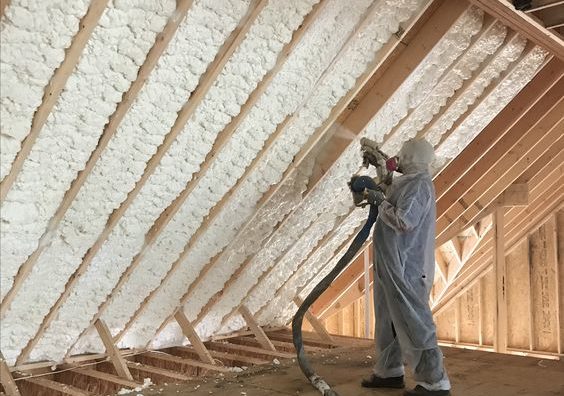Choosing the right spray foam insulation contractor in Taylor, TX begins with focusing on a few critical factors. First, verify that the contractor has extensive experience working with spray foam insulation, specifically in residential settings similar to your home. Experience means they understand the nuances of foam types, local climate challenges, and the best installation techniques. You want a contractor who is not only certified and licensed but also well-reviewed by other homeowners in the area.
Next, evaluate the quality of materials and methods the contractor uses. Spray foam insulation can vary widely in terms of product grade, application precision, and safety measures. A knowledgeable contractor will guide you in choosing between closed-cell and open-cell foam based on your home’s structure and energy goals. Customer service and ongoing support also matter. A contractor who stands behind their work with clear warranties and is accessible for follow-up questions will protect your investment. This article will walk you through everything you need to consider when selecting local insulation experts for spray foam in Taylor.
What to Look for When Hiring a Spray Foam Insulation Contractor
The process of choosing a qualified spray foam insulation contractor goes beyond just finding the lowest price. It involves a detailed assessment of qualifications, materials, and approach.
Start by confirming the contractor’s certifications. Proper certification means the installers have undergone formal training and understand how to handle spray foam chemicals safely and apply the product correctly. In Texas, experts must also hold appropriate state and local licenses to perform insulation work. These certifications protect homeowners by ensuring compliance with building codes and industry standards.
Experience is another cornerstone. Look for experts with several years of hands-on spray foam work and a portfolio of completed projects in your area. Spray foam behaves differently depending on the home’s design and environmental factors such as humidity and temperature. Experienced professionals know how to adjust the process to avoid common problems like overspray, improper curing, or air gaps that reduce insulation effectiveness.

Beyond technical skills, check the quality of the spray foam products used. The best experts offer both open-cell and closed-cell foam and can explain the differences clearly. Closed-cell foam provides a higher R-value and acts as a moisture barrier, making it ideal for exterior walls or foundations in humid climates. Open-cell foam is more flexible and often used in interior walls or ceilings. A skilled contractor will recommend the best type for your specific needs rather than pushing a single product.
Customer reviews and local reputation are essential indicators. Trusted experts often have positive feedback from homeowners praising their professionalism, timeliness, and cleanliness during installation. Since spray foam installation can be disruptive, a contractor who respects your property and communicates clearly will reduce stress throughout the project.
Finally, ask about warranties and post-installation services. The right contractor should offer a written warranty covering both materials and workmanship, along with an option for inspection or maintenance after the job is complete. This ensures your home’s insulation will continue performing well long-term.
Spray Foam Options and Contractor Qualities Compared
| Aspect | Closed-Cell Spray Foam | Open-Cell Spray Foam | Contractor Qualities |
|---|---|---|---|
| R-Value per Inch | 6.0 to 7.0 | 3.5 to 4.0 | Certified, licensed personnel |
| Moisture Resistance | High; vapor barrier properties | Moderate; allows vapor permeability | Extensive experience with local climate |
| Structural Support | Adds rigidity and strength | More flexible and softer | Uses high-quality products |
| Cost | Higher initial cost | More affordable | Positive customer reviews |
| Ideal Application | Exterior walls, roofs, basements | Interior walls, ceilings | Provides clear warranty and follow-up |
| Installation Time | Slightly longer curing time | Faster curing | Knowledge of proper safety protocols |
Technical Details to Understand

| Specification | Description | Why It Matters |
|---|---|---|
| R-Value | Insulation’s resistance to heat flow | Higher means better insulation performance |
| Application Temperature | Optimal temperature range for installation | Affects foam expansion and adhesion |
| Foam Expansion Rate | How much foam grows after application | Controls air sealing and gap filling |
| VOC Emissions | Amount of volatile organic compounds released | Low VOCs reduce indoor air pollution |
| Curing Time | Time required for foam to harden fully | Influences project timeline and safety |
Understanding these specs helps homeowners evaluate contractor proposals critically and ensures the insulation will meet performance expectations.
What You Should Consider Before Making a Decision
Before you finalize a contractor, take time to evaluate your specific situation carefully. Every home is different, and a one-size-fits-all approach won’t work with spray foam insulation.
Begin with a thorough home inspection. Identify existing insulation weaknesses, air leaks, or moisture problems. This step helps the contractor recommend the right spray foam type and installation strategy.
Consider your local climate in Taylor. High humidity or seasonal temperature swings can influence which foam performs best. experts familiar with Texas weather can tailor their approach accordingly.
Set a realistic budget. While spray foam can reduce energy bills over time, upfront costs vary depending on foam type, coverage area, and labor. Avoid choosing solely based on price; prioritize quality and long-term value.
Confirm project timelines with the contractor. Ask about their schedule and how weather or site conditions could impact completion.
Discuss any material preferences or environmental concerns. If you want eco-friendly foam with reduced chemical emissions, ask if the contractor offers such options.
Finally, ensure the contractor carries proper insurance and liability coverage. This protects you from risks related to property damage or accidents during installation.
Common Questions About Choosing Spray Foam Insulation Professionals
How do I decide between open-cell and closed-cell spray foam? Closed-cell foam offers higher insulation value and moisture resistance, making it suitable for exterior walls or damp areas. Open-cell foam is lighter, more flexible, and works well inside walls or ceilings where moisture control is less critical.
What certifications should I look for in a spray foam contractor? Look for certifications from industry organizations like the Spray Polyurethane Foam Alliance (SPFA) or manufacturer-specific training credentials. Also, verify state and local licenses.
Will spray foam insulation help reduce my energy bills immediately? Yes, properly installed spray foam seals air leaks and improves thermal resistance, leading to noticeable reductions in heating and cooling costs.
Are there health risks associated with spray foam? If applied correctly with adequate ventilation, modern spray foam products pose minimal health risks. However, installation requires trained professionals who follow safety guidelines.
How long does the spray foam insulation last? Spray foam typically lasts 20 years or more without losing effectiveness, as long as it remains intact and dry.
Bonus Tips for Choosing the Best Contractor

When interviewing experts, request a detailed written proposal that includes the scope of work, materials, estimated costs, and warranty details. This documentation prevents misunderstandings and sets clear expectations.
Don’t hesitate to ask for references or visit previous job sites if possible. Seeing completed work firsthand can provide confidence in the contractor’s quality.
Finally, confirm the contractor’s commitment to staying updated with the latest spray foam technologies and installation methods. The insulation industry evolves, and choosing a forward-thinking professional ensures your home benefits from current best practices.
Conclusion
Selecting the right spray foam insulation contractor in Taylor, TX demands careful consideration of certifications, experience, product quality, and local knowledge. A well-chosen professional will tailor insulation to your home’s needs, ensuring optimal comfort and energy savings for years to come. Take time to research, ask questions, and compare options before making a decision. Your investment in quality spray foam insulation pays off through reduced energy costs and improved indoor living conditions.
Ready to Improve Your Home’s Energy Efficiency?
Use these guidelines to evaluate your options and choose a trusted spray foam insulation contractor that fits your needs. For expert advice and dependable service in Taylor, TX, reach out to H&R Foam Insulation LLC. Their team of certified professional foam advisors combines technical skill with local expertise to help homeowners enhance comfort and efficiency.
Contact H&R Foam Insulation LLC Phone: (512) 862-9637 Email: [email protected]
[Image: Spray foam insulation being applied in attic space] [Image: Comparison chart showing differences between open-cell and closed-cell spray foam]
FAQ
What distinguishes a certified spray foam professional from others? Certification proves the installer has undergone specialized training on safety, product handling, and proper application, leading to better results and reduced risks.
Can spray foam insulation be added over existing insulation? Yes, spray foam can be applied over some existing insulation, but the contractor must evaluate the condition and compatibility first.
How do I know if my home qualifies for spray foam insulation? A professional inspection will identify areas where spray foam can improve energy efficiency and comfort, considering structural and environmental factors.
What maintenance does spray foam insulation require? Spray foam requires minimal maintenance but should be checked periodically for damage or moisture intrusion.
Does spray foam insulation increase home value? Properly installed spray foam can improve home value by enhancing energy efficiency and overall comfort, which are attractive to buyers.
Author: With 15 years of banking experience and five years managing H&R Foam Insulation, Edith is passionate about building strong relationships with customers. Her favorite part of the role is connecting with clients and ensuring their needs are met as she works alongside them to improve the health, comfort, and energy efficiency of their homes.
Reviewer: With 7 years in the spray foam insulation business, Ella Adams offered useful feedback on this post, helping make sure the tips were both realistic and easy to apply.